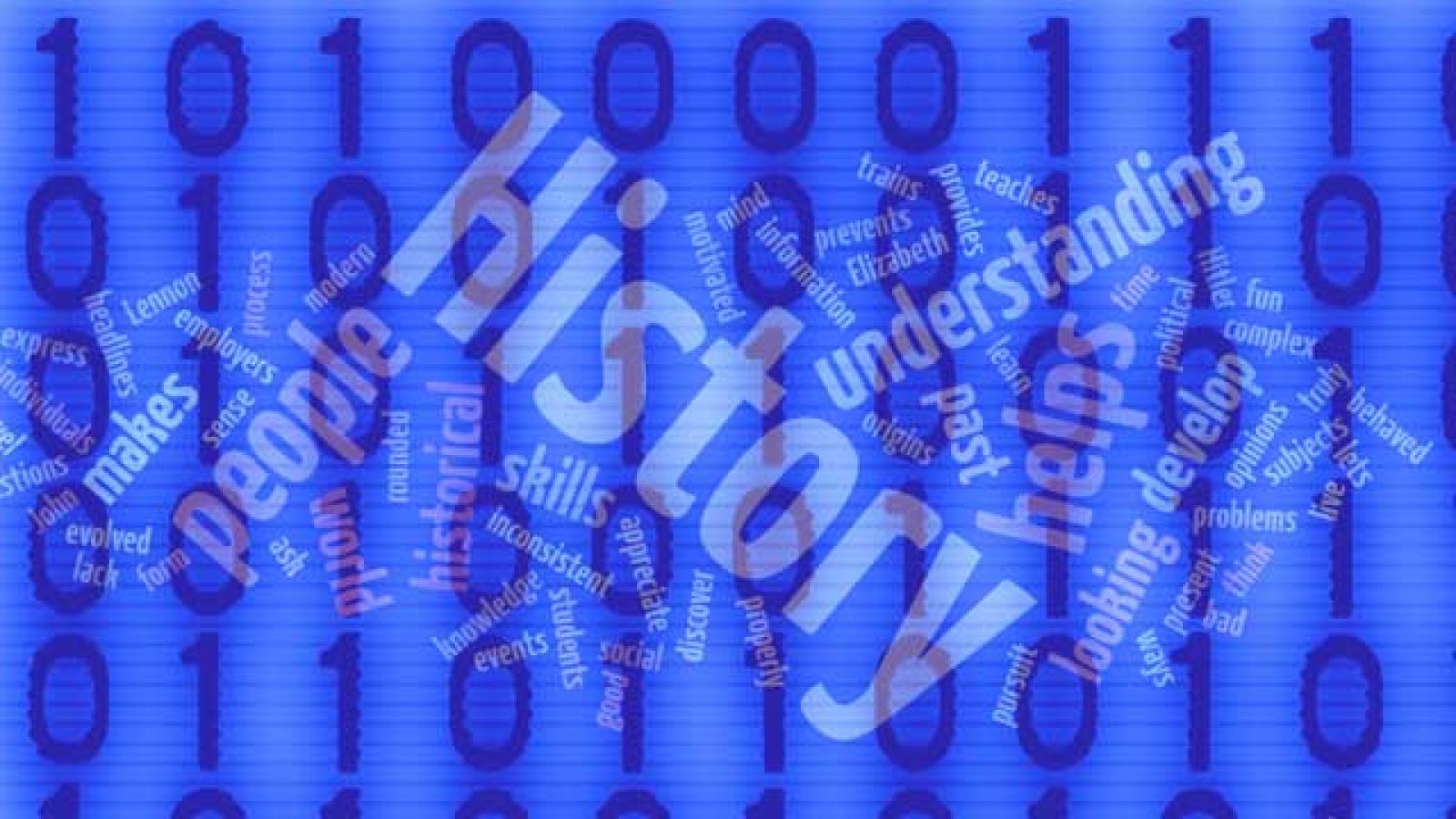Digital history for the digital generation

Digital history, digital heritage introduces the monumental changes the digital age has brought to our lives and how our governments, cultural, and collecting institutions are changing, new digital history course coordinator Dr Kynan Gentry says.
A discipline that traditionally studies the past is using tools for the future, and giving students highly transferrable skills.
“If you think about the historian’s trade by definition, it’s working with the remnants of the past,” he says.
“Generally, the further you look back, the scarcer these remnants are.
“The challenge for the student of history has really been how you contextualise and interpret those fragments, and often to simply find enough primary evidence in the first place.
“In the computer age, we have the opposite problem – a problem of abundance.
“I often give the example that the archival footprint of the Clinton administration produced more than two million photographs, 40 million emails, 80 million documents – and this was an administration that started more than two years before the modern Internet was born.
“If you’re doing historical research into the Clinton administration, how do you begin to even work through that much material?”
Kynan knows his subject: he is an author and scholar, a former New Zealand government digital historian, web developer and coder.
The ANU School of History has this semester begun offering a digital history course that will teach students practical skills to preserve the past online and how to make sense of an abundance of information.
The digital history course has three themes:
1) epistemology; how the digital age has changed the place and flow of knowledge in society;
2) methodological; how historical research is done, for example developing methodologies;
3) writing for the web. Stories no longer need be linear and students will make an historically-themed web site as part of their final assessment.
Students who complete the course will have attained skills that are highly-transferable, given that people now change their careers an average four to five times in their working lives.
“All of the talk there has been in the news in recent months about robots replacing sectors of the employment sector, so the definition of the ideal employee in a decade is an Arts graduate,” Kynan says.
“It’s someone who can quickly gather, collect and assess information from a range of sources and communicate those findings in a range of ways to a number of different audiences.
“Increasingly, that’s in digital format, so writing, researching in a digital world are what we’re teaching in this course.”
Kynan expects he will be learning from his students, most of whom are part of a generation “born with a mobile phone in their hand”, he says.
“What is learned and second nature for me is pretty much first nature for them.”